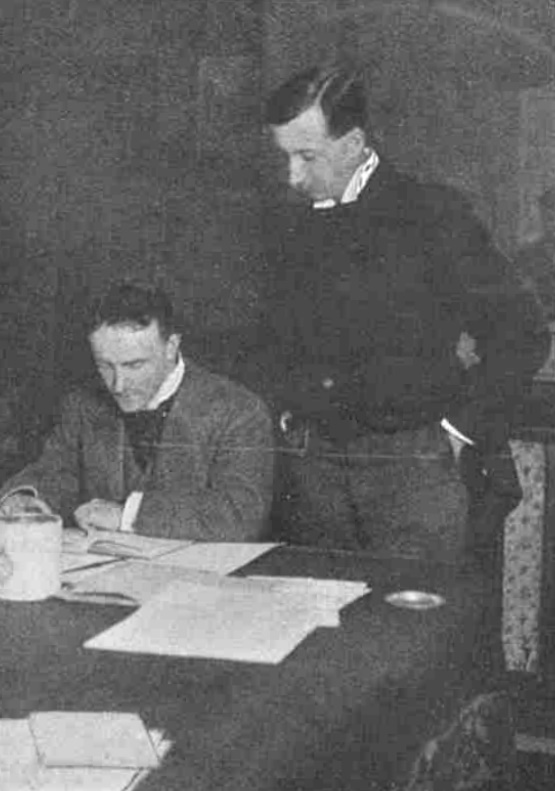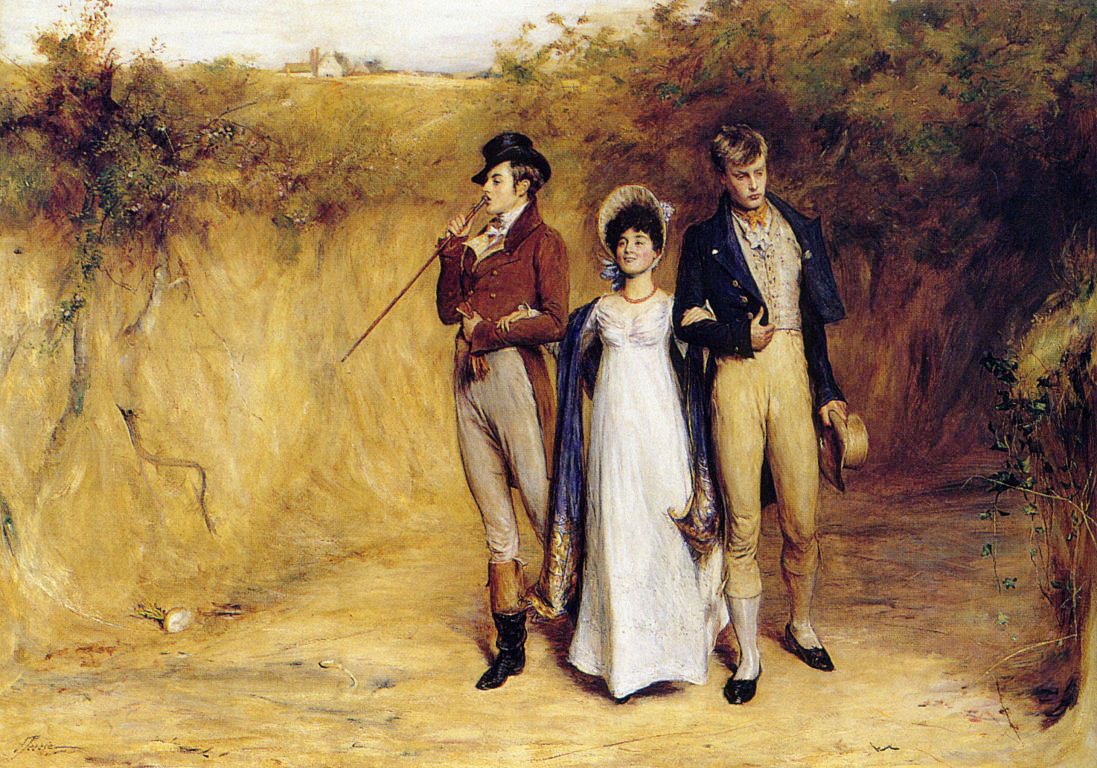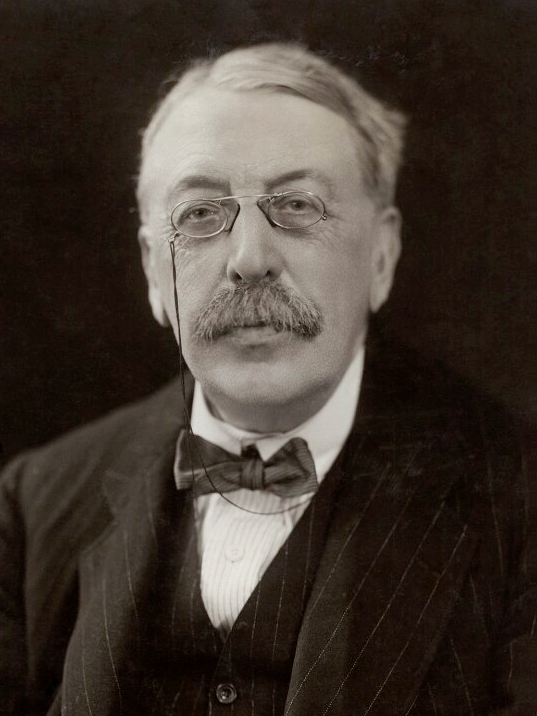|
Hamish MacCunn
Hamish MacCunn, ''né'' James MacCunn (22 March 18682 August 1916) was a Scottish composer, conductor and teacher. He was one of the first students of the newly-founded Royal College of Music in London, and quickly made a mark. As a composer he achieved early success with his orchestral piece '' The Land of the Mountain and the Flood'' (1887), and, later, his first opera, ''Jeanie Deans'' (1894). His subsequent compositions did not match those two successes, and although he continued to compose throughout his life, he became best known as a conductor and teacher. He held teaching appointments at the Royal Academy of Music and the Guildhall School of Music. As a conductor MacCunn served as musical director to the Carl Rosa, Moody-Manners and D'Oyly Carte opera companies, and worked with Thomas Beecham in the latter's London opera seasons in 1910 and 1915 and on tour. Life and career Early years James MacCunn was born in Greenock, Scotland, the second son of James MacCunn an ... [...More Info...] [...Related Items...] OR: [Wikipedia] [Google] [Baidu] |
John Pettie
John Pettie (Edinburgh 17 March 1839 – 21 February 1893 Hastings) was a painter from Edinburgh who spent most of his career in London. He became a member of the Royal Academy in 1866 and a full academician in 1874. As an enthusiastic amateur musician, he helped the career of the young composer Hamish MacCunn by organising concerts for him in his own studio. MacCunn, who would marry Pettie's daughter Alison in 1888, also served as a model for many of his paintings and sketches in various distinctive occasions. Biography John Pettie was born in Edinburgh, the son of Alexander and Alison Pettie. In 1852 the family moved to East Linton, Haddingtonshire. Initially, his father objected to him taking up art as a career, but this was overcome following a portrait by Pettie of the village carrier and his donkey. When he was sixteen he entered the Trustees Academy in Edinburgh, working under Robert Scott Lauder with William Quiller Orchardson, J. MacWhirter, William McTaggart, ... [...More Info...] [...Related Items...] OR: [Wikipedia] [Google] [Baidu] |
Charles Villiers Stanford
Sir Charles Villiers Stanford (30 September 1852 – 29 March 1924) was an Anglo-Irish composer, music teacher, and conductor of the late Romantic music, Romantic era. Born to a well-off and highly musical family in Dublin, Stanford was educated at the University of Cambridge before studying music in University of Music and Theatre Leipzig, Leipzig and Berlin. He was instrumental in raising the status of the Cambridge University Musical Society, attracting international stars to perform with it. While still an undergraduate, Stanford was appointed organist of Trinity College, Cambridge. In 1882, aged 29, he was one of the founding professors of the Royal College of Music, where he taught composition for the rest of his life. From 1887 he was also Professor of Music (Cambridge), Professor of Music at Cambridge. As a teacher, Stanford was sceptical about modernism, and based his instruction chiefly on classical principles as exemplified in the music of Johannes Brahms, Brahms ... [...More Info...] [...Related Items...] OR: [Wikipedia] [Google] [Baidu] |
Edinburgh
Edinburgh ( ; gd, Dùn Èideann ) is the capital city of Scotland and one of its 32 Council areas of Scotland, council areas. Historically part of the county of Midlothian (interchangeably Edinburghshire before 1921), it is located in Lothian on the southern shore of the Firth of Forth. Edinburgh is Scotland's List of towns and cities in Scotland by population, second-most populous city, after Glasgow, and the List of cities in the United Kingdom, seventh-most populous city in the United Kingdom. Recognised as the capital of Scotland since at least the 15th century, Edinburgh is the seat of the Scottish Government, the Scottish Parliament and the Courts of Scotland, highest courts in Scotland. The city's Holyrood Palace, Palace of Holyroodhouse is the official residence of the Monarchy of the United Kingdom, British monarchy in Scotland. The city has long been a centre of education, particularly in the fields of medicine, Scots law, Scottish law, literature, philosophy, the sc ... [...More Info...] [...Related Items...] OR: [Wikipedia] [Google] [Baidu] |
The Heart Of Midlothian
''The Heart of Mid-Lothian'' is the seventh of Sir Walter Scott's Waverley Novels. It was originally published in four volumes on 25 July 1818, under the title of ''Tales of My Landlord, 2nd series'', and the author was given as "Jedediah Cleishbotham, Schoolmaster and Parish-clerk of Gandercleugh". The main action, which takes place between September 1736 and May 1737, is set in motion by the Porteous Riots in Edinburgh and involves an epic journey from Edinburgh to London by a working-class girl to obtain a royal commutation of the death penalty incurred by her sister for the alleged murder of her new-born baby. Despite some negative contemporary reviews, some now consider it Scott's best novel. Composition and sources Scott signed the contract for a second series of ''Tales of my Landlord'' with Archibald Constable on 25 November 1817. He had the conception of ''The Heart of Mid-Lothian'' in his head by that date, and indeed it is possible that he had already produced the in ... [...More Info...] [...Related Items...] OR: [Wikipedia] [Google] [Baidu] |
Walter Scott
Sir Walter Scott, 1st Baronet (15 August 1771 – 21 September 1832), was a Scottish novelist, poet, playwright and historian. Many of his works remain classics of European and Scottish literature, notably the novels ''Ivanhoe'', ''Rob Roy (novel), Rob Roy'', ''Waverley (novel), Waverley'', ''Old Mortality'', ''The Heart of Mid-Lothian'' and ''The Bride of Lammermoor'', and the narrative poems ''The Lady of the Lake (poem), The Lady of the Lake'' and ''Marmion (poem), Marmion''. He had a major impact on European and American literature. As an advocate, judge and legal administrator by profession, he combined writing and editing with daily work as Clerk of Session and Sheriff court, Sheriff-Depute of Selkirkshire. He was prominent in Edinburgh's Tory (political faction), Tory establishment, active in the Royal Highland and Agricultural Society of Scotland, Highland Society, long a president of the Royal Society of Edinburgh (1820–1832), and a vice president of the Society o ... [...More Info...] [...Related Items...] OR: [Wikipedia] [Google] [Baidu] |
Arthur Goring Thomas
Arthur Goring Thomas (20 November 185020 March 1892) was an English composer. Life He was the youngest son of Freeman Thomas and Amelia, daughter of Colonel Thomas Frederick. His elder brothers included Freeman Frederick Thomas, a noted cricketer, who was the father of Freeman Freeman-Thomas, 1st Marquess of Willingdon, Viceroy of India; and Sir Charles Inigo Thomas. He was born at Ratton Park, Sussex, and educated at Haileybury College. He was intended for the Civil Service, but delicate health interfered with his studies, and in 1873 he went to Paris to cultivate the musical talent he had displayed from an early age. Here he studied for two years with Émile Durand. In 1875, he returned to England, and in 1877 entered the Royal Academy of Music, where for three years he studied under Ebenezer Prout and Arthur Sullivan, twice winning the Lucas medal for composition. At a later period he received some instruction in orchestration from Max Bruch. His first published compositio ... [...More Info...] [...Related Items...] OR: [Wikipedia] [Google] [Baidu] |
Frederic Hymen Cowen
Sir Frederic Hymen Cowen (29 January 1852 – 6 October 1935), was an English composer, conductor and pianist. Early years and musical education Cowen was born Hymen Frederick Cohen at 90 Duke Street, Kingston, Jamaica, the fifth and last child of Frederick Augustus Cohen and Emily Cohen ''née'' Davis. His siblings were Elizabeth Rose Cohen (b. 1843); actress, Henrietta Sophia Cohen (b. 1845); painter, Lionel Jonas Cohen (b. 1847) and Emma Magnay Cohen (b. 1849). At the age of four years Frederic was brought to England, where his father became treasurer to the opera at Her Majesty's Opera, now Her Majesty's Theatre, and private secretary to William Humble Ward, 11th Lord Ward (1817–1885). The family initially lived at 11 Warwick Crescent, London, in the area known as Little Venice. His first teacher was Henry Russell, and his first published composition, ''Minna-waltz'', appeared when he was only six years old. He produced his first published operetta, ''Garibaldi'', ... [...More Info...] [...Related Items...] OR: [Wikipedia] [Google] [Baidu] |
Palace Theatre, London
The Palace Theatre is a West End theatre in the City of Westminster in London. Its red-brick facade dominates the west side of Cambridge Circus behind a small plaza near the intersection of Shaftesbury Avenue and Charing Cross Road. The Palace Theatre seats 1,400. Richard D'Oyly Carte, producer of the Gilbert and Sullivan operas, commissioned the theatre in the late 1880s. It was designed by Thomas Edward Collcutt and intended to be a home of English grand opera. The theatre opened as the Royal English Opera House in January 1891 with a lavish production of Arthur Sullivan's opera ''Ivanhoe''. Although this ran for 160 performances, followed briefly by André Messager's ''La Basoche'', Carte had no other works ready to fill the theatre. He leased it to Sarah Bernhardt for a season and sold the opera house within a year at a loss. It was then converted into a grand music hall and renamed the Palace Theatre of Varieties, managed successfully first by Sir Augustus Harris and the ... [...More Info...] [...Related Items...] OR: [Wikipedia] [Google] [Baidu] |
Richard D'Oyly Carte
Richard D'Oyly Carte (; 3 May 1844 – 3 April 1901) was an English talent agent, theatrical impresario, composer, and hotelier during the latter half of the Victorian era. He built two of London's theatres and a hotel empire, while also establishing an opera company that ran continuously for over a hundred years and a management agency representing some of the most important artists of the day. Carte started his career working for his father, Richard Carte, in the music publishing and musical instrument manufacturing business. As a young man he conducted and composed music, but he soon turned to promoting the entertainment careers of others through his management agency. Carte believed that a school of wholesome, well-crafted, family-friendly, English comic opera could be as popular as the risqué French works dominating the London musical stage in the 1870s. To that end he brought together the dramatist W. S. Gilbert and composer Arthur Sullivan and nurtured their collaboration ... [...More Info...] [...Related Items...] OR: [Wikipedia] [Google] [Baidu] |
Carl Rosa
Carl August Nicholas Rosa (22 March 184230 April 1889) was a German-born musical impresario best remembered for founding an English opera company known as the Carl Rosa Opera Company. He started his company in 1869 together with his wife, Euphrosyne Parepa-Rosa, and popularised opera in Britain and America, performing standard repertory in English, as well as operas by English composers. Early life and career Rosa was born Karl August Nikolaus Rose in Hamburg, Germany, the son of Ludwig Rose, a Hamburg businessman, and Sophie Becker. His father subsequently took him to Edinburgh. A child prodigy, Rosa toured in Scotland from age 12 to age 16, eventually earning glowing notices.''The Manchester Guardian'', obituary, 1 May 1889, p. 5"The young Carl Rosa's gigs in Scotland" Opera Scotl ... [...More Info...] [...Related Items...] OR: [Wikipedia] [Google] [Baidu] |
George Bernard Shaw
George Bernard Shaw (26 July 1856 – 2 November 1950), known at his insistence simply as Bernard Shaw, was an Irish playwright, critic, polemicist and political activist. His influence on Western theatre, culture and politics extended from the 1880s to his death and beyond. He wrote more than sixty plays, including major works such as ''Man and Superman'' (1902), ''Pygmalion'' (1913) and '' Saint Joan'' (1923). With a range incorporating both contemporary satire and historical allegory, Shaw became the leading dramatist of his generation, and in 1925 was awarded the Nobel Prize in Literature. Born in Dublin, Shaw moved to London in 1876, where he struggled to establish himself as a writer and novelist, and embarked on a rigorous process of self-education. By the mid-1880s he had become a respected theatre and music critic. Following a political awakening, he joined the gradualist Fabian Society and became its most prominent pamphleteer. Shaw had been writing plays for years ... [...More Info...] [...Related Items...] OR: [Wikipedia] [Google] [Baidu] |









